|
Two weeks ago, it snowed in Toronto. On Monday, the city was under a heat warning as temperatures soared to 30C. The sudden shift to summer — combined, no doubt, with lockdown fatigue — has propelled people into parks and green spaces en masse, with some flouting public health recommendations.
Richard Louv introduced the idea of “nature-deficit disorder” 15 years ago, suggesting that spending less time outdoors —and more time in front of screens — can contribute to health and emotional problems: difficulties with attention, obesity and other mental and physical health issues. It sounds a lot like what we’re experiencing during this coronavirus quarantine.
Today in The Conversation Canada, Deena Shaffer from Ryerson University writes about the relationship we have with the outdoors, and how green spaces can help us de-stress, heal and deal with life’s difficulties. Get outside, but remember to wear a mask and stay two metres apart.
Also today:
Regards,
|
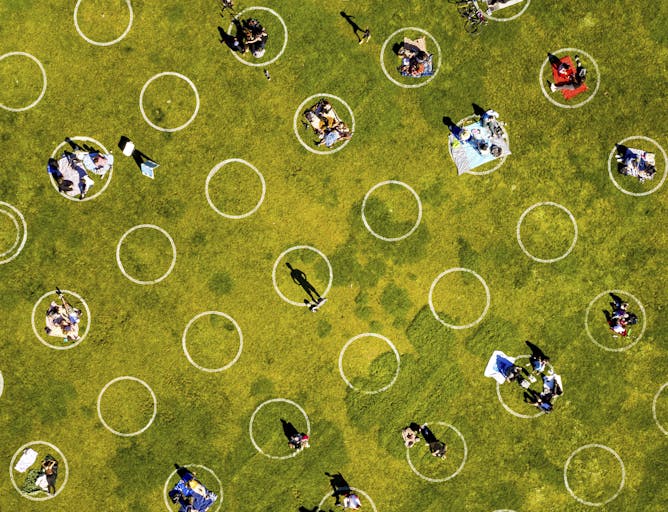
Circles painted on the grass in San Francisco’s Dolores Park encourage social distancing and help prevent the spread of coronavirus.
(AP Photo/Noah Berger)
Deena Shaffer, Ryerson University
Spending some time outdoors can help restore mental well-being, but physical distancing remains important during the coronavirus pandemic.
|
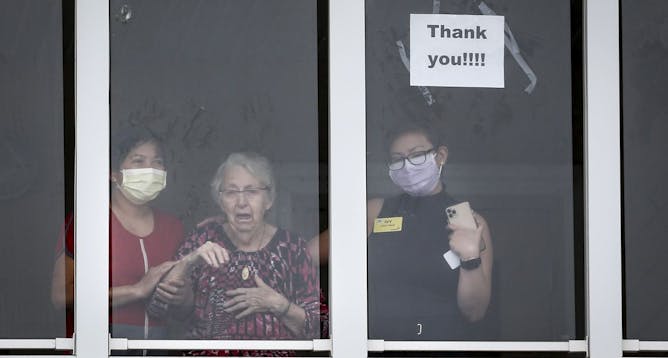
Residents and staff wave to family and friends who came out to show support of those in the McKenzie Towne Long Term Care centre in Calgary, Alta.
THE CANADIAN PRESS/Jeff McIntosh
Tania Das Gupta, York University, Canada
Nursing homes and long term care in Canada are predominantly staffed by immigrant women, migrants and refugees — mostly women of colour.
|

Many boys will be happy to avoid the culture of the school locker room during the coronavirus.
Shutterstock
Michael Kehler, University of Calgary
The extended COVID-19 social isolation could be an opportunity for parents to have an impact on how boys are schooled in masculinity.
|
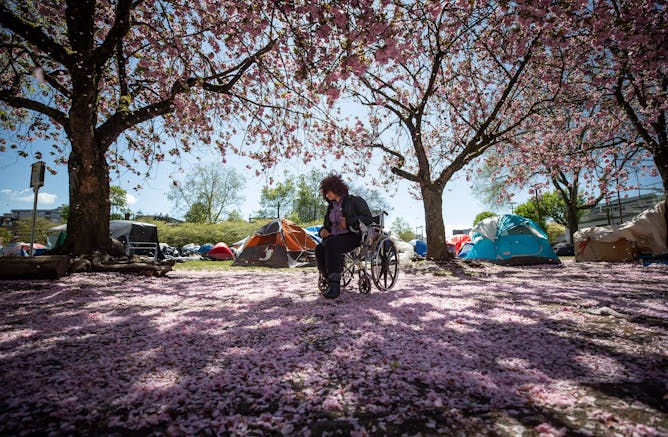
A woman uses her feet to pull herself along in a wheelchair among cherry blossoms at a homeless camp at Oppenheimer Park in Vancouver in April 2020 that was recently evaculated due to COVID-19. The coronavirus has exposed and fed upon other societal issues in true ‘syndemic’ fashion.
THE CANADIAN PRESS/Darryl Dyck
Tiff-Annie Kenny, Université Laval
When two or more epidemics co-exist and compound one another to worsen health, they are said to be syndemic. COVID-19 is feeding on other crises and diseases.
|
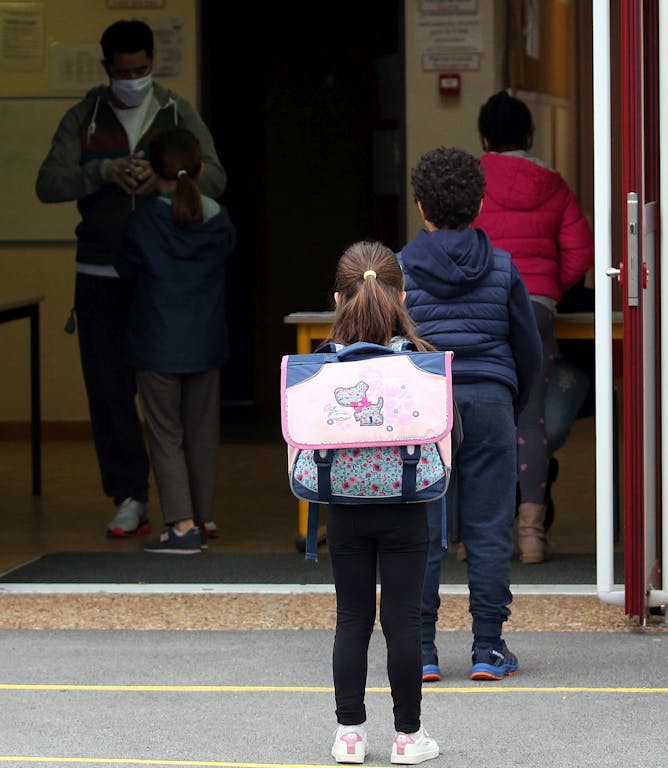
Children wait to wash their hands before going into class at their school in Saint Jean de Luz, southwestern France, on May 14, 2020, as some schools started reopening after COVID-19 lockdowns.
(AP Photo/Bob Edme)
Jerome Cranston, University of Regina
A national task force could help educational leaders develop their plans to reopen schools.
|

An artist’s concept of a hypothetical planet with a distant sun.
(Shutterstock)
Samantha Lawler, University of Regina
In the search for the hypothetical Planet Nine, scientists may have uncovered another explanation for the patterns in the orbits of Kuiper Belt objects.
|
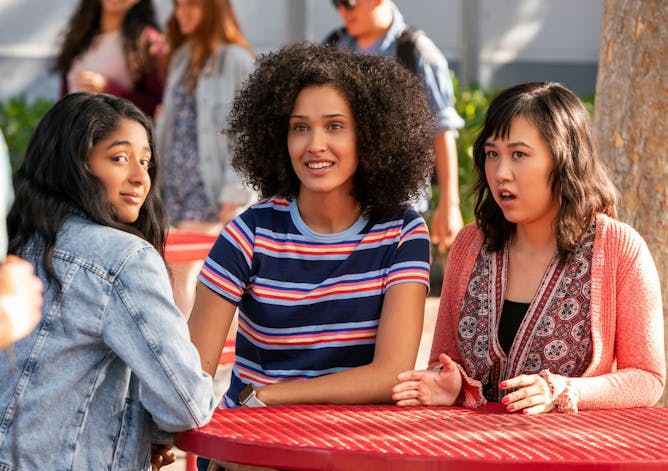
Maitreyi Ramakrishnan, left, stars in Never Have I Ever as Devi, a delightful protagonist who has endearing, thoughtful friends with stories of their own, Fabiola (Lee Rodriguez), center, and Eleanor (Ramona Young), right.
(Lara Solanki/Netflix)
Faiza Hirji, McMaster University
"Never Have I Ever" is a fresh, fun and poignant addition to television’s repertoire of coming-of-age stories, especially for stories of Indian teenage girls.
|

La crise actuelle et ses remises en causes amènent chacun à se questionner quant au sens à donner à la vie et au travail.
shutterstock
Elodie Chevallier, Université de Sherbrooke
La pandémie remet en question nos valeurs : est-ce que je n’accorde pas trop de place à mon travail ? Est-ce que mon activité est vraiment utile à la société ? Quel est son sens ?
|